Assist India – Building Ideal Communities
Our Approach
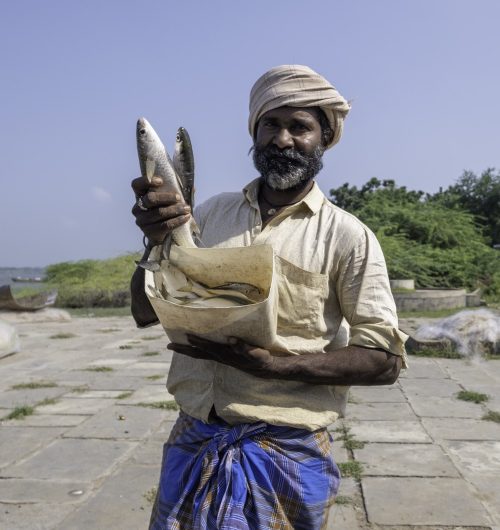
ASSIST’s Approach
Over the past three decades, we have studied the root causes of poverty of vulnerable communities.
We are convinced that communities should decide on their own development programmes, and that ASSIST should only act as a facilitator. It is crucial to enable local people to lead their development process independently, long after ASSIST has left the area.
Drawing on this experience, ASSIST has created a comprehensive community development strategy to break the cycle of poverty in rural areas.
Key Development Phases
Our comprehensive community development approach consists of three phases. By following these steps, sustainable development can be achieved:

Phase 1 - Socio-Educational Development
The core of ASSIST’s approach is to empower the poor by creating self-sustaining People’s Organisations. To build a firm basis for sustainable development, during this first phase a community is supported to register itself with the local government to attain a legal status. Democratically elected leaders of these organisations receive training to take up responsibility for all future activities.
Within this important phase there are 5 principal activities:
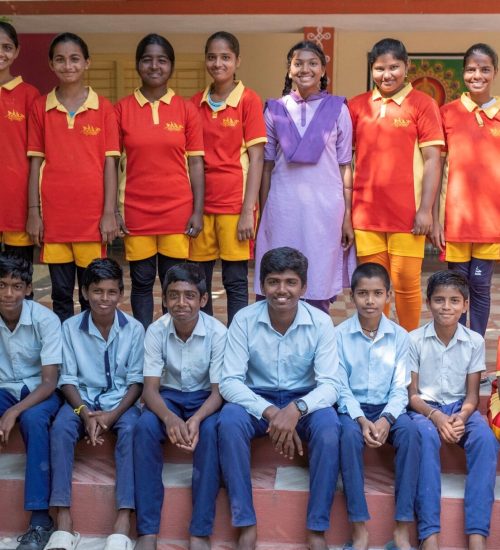
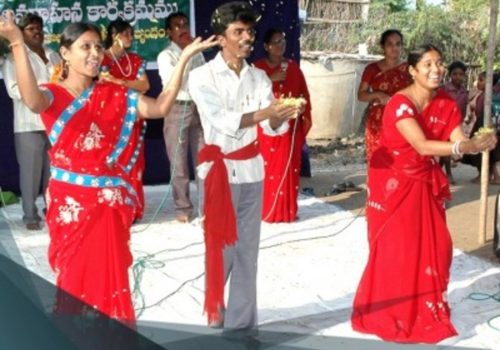
Awareness generation
The target groups that ASSIST works with are the poorest and most marginalised communities in Indian society: scheduled castes and tribes, fishermen, artisans, agricultural labourers, small and marginal farmers, and migrant workers. Within these groups poverty has passed on for many generations, diminishing their hope for change and a better future for their children.
ASSIST’s critical first task is therefore to transform this mindset and build people’s confidence that change is possible. We have developed a variety of hands-on techniques to sensitise a community, including regular house visits, group meetings and mass rallies, wall paintings and cultural performances.
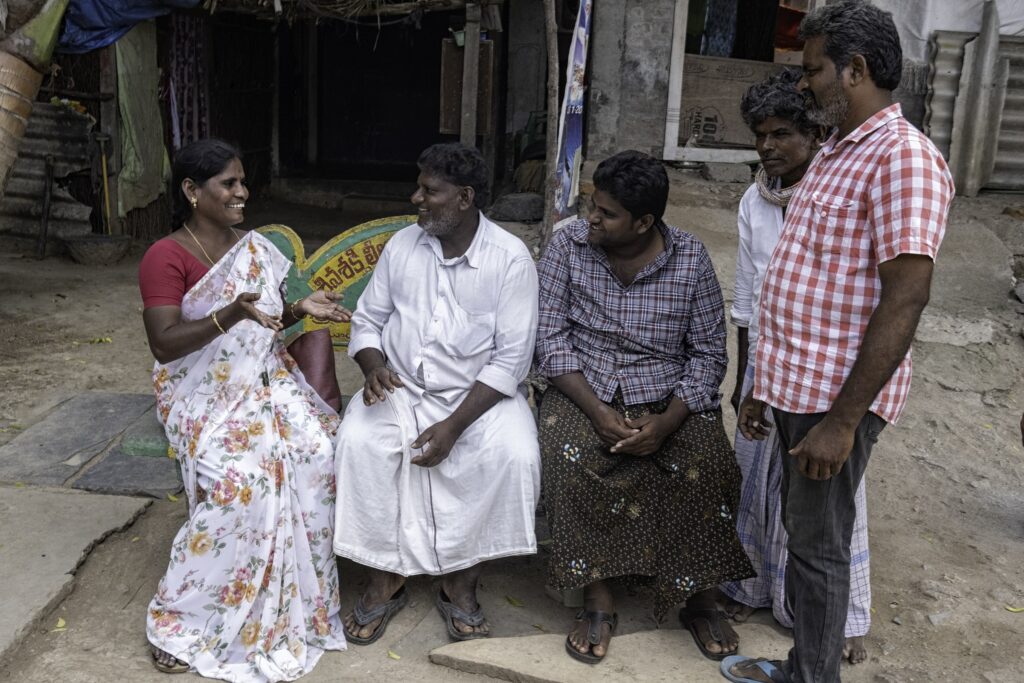
People’s Organisations
Following the awareness generation stage, ASSIST initiates the formation of People’s Organisations at the community level, including Village Development Societies, (Women) Self-Help Groups and Mutually Aided Co-operative Thrift and Credit Societies. Once these organisations are established, its members need to have the knowledge, skills and capacities required for effective management and the execution of their programmes.
ASSIST provides training on various issues like leadership, management, identifying problems and finding solutions, uniting community members and mobilising them to participate in development activities, and applying for funds from local Government institutions.
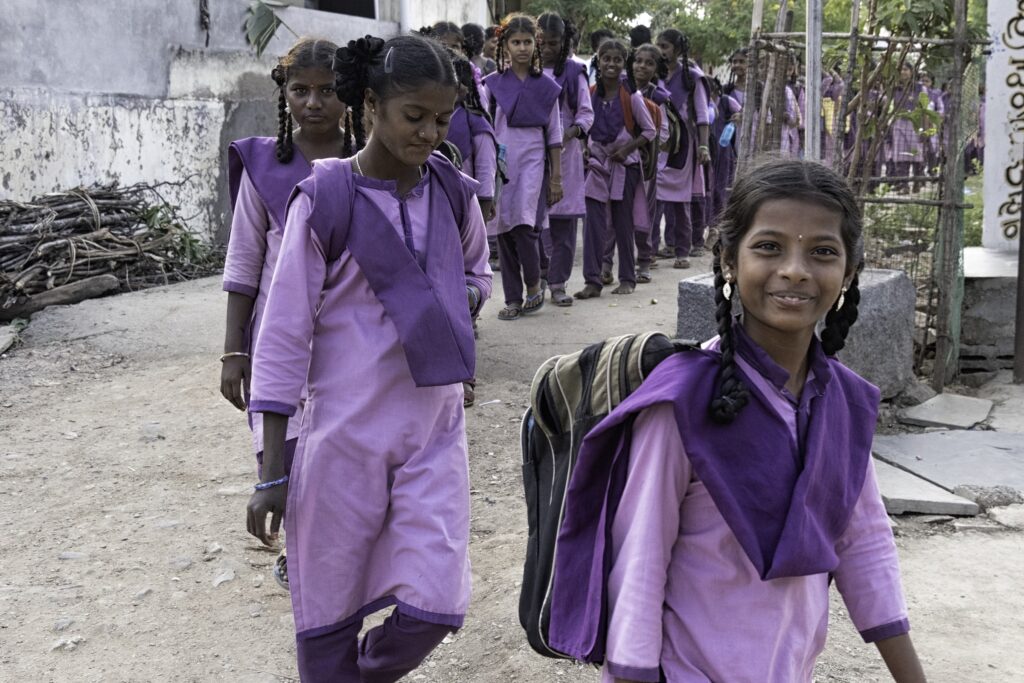
Child Development
Children in our target communities in rural Andhra Pradesh are too often missing the opportunities to dream of a brighter future due to the prevailing poverty, illiteracy, and lack of infrastructure for care and education.
ASSIST works hard to address these long-standing challenges by creating awareness of the importance of education and the consequences of child labour at the community level.
Newly formed People’s Organisations are encouraged to engage directly with this topic and to begin to review the impact of school infrastructure facilities and sustainable livelihood alternatives in eliminating the need for parents to consider sending children to work.

Community Health
One of the major problems found in poor and neglected rural communities is health. The consequences of poor sanitary facilities, unhygienic practices, and lack of safe water and health care are visible in many rural villages.
ASSIST delivers a community health programme covering issues like family welfare, mother and childcare, nutrition, drinking water, environmental sanitation and personal hygiene, immunisation, and patient care.
In remote areas where people have never visited a medical specialist, we organise health check-up camps. We also motivate people to grow vegetables, high yielding pulses, and to raise chickens to improve nutrition.

Women’s Empowerment
ASSIST believes that community development is incomplete without the inclusion of women’s voices and participation. We encourage women to organise themselves in People’s Organisations like Self-Help Groups and build confidence to raise their voices and fight for their rights. Our next step is to increase their skills, capacities, and knowledge of women’s legal rights to increase their participation in community decision-making.
ASSIST gives special attention to the promotion of building up savings and credit as an instrument of socio-economic change among women. Taking the lead in family finances provides women with an independent, viable and visible role, building confidence in engagements with their families and community.
Once the Socio-Educational phase is complete, each community has the awareness of critical development issues such as children’s education, health and women’s empowerment, and the vehicle to address these issues through People’s Organisations. Each Village Development Society (VDS) is officially registered as legal organisation. This means that through the VDS, village communities can apply for government schemes and take out loans, which is essential for the next two phases.
Phase 2. Infrastructure Development
Once the People’s Organisations become active and are able to respond to the problems of their community, they are encouraged to take up infrastructure development programmes with the guidance of ASSIST, and the financial support of the local Government. External support sought by ASSIST from donor organisations is always combined with the full engagement of the local community and, where possible, government grants and loans.
This phase provides an opportunity for villagers to improve their living environment. The activities typically prioritised by communities in this phase are secured shelter, household sanitary installations, water conservation, usage, and management. These activities enable each village to improve their physical living conditions in a sustainable way, as the projects are overseen by the community themselves. This phase also creates greater pride, confidence, and dignity among the population.


Phase 3 – Economic Development
This third phase aims to improve the economic status of the target families by identifying permanent and sustainable income sources. Working children may be withdrawn from work after motivating the parents, but to sustain this change and ensure that the parents are not forced to send their children back to work, livelihood promotion opportunities must be enhanced.
The types of activity in this phase are diverse and the exact type of economic development will depend on the typical income generating activities of each region in which ASSIST works. Current projects include supporting weaving cooperatives, training in organic farming methods, household level income generation schemes, and vocational training in IT, fashion design and healthcare administration.
ASSIST aims at making provisions for communities to take up viable income generation schemes, which they can sustain over the long term.

